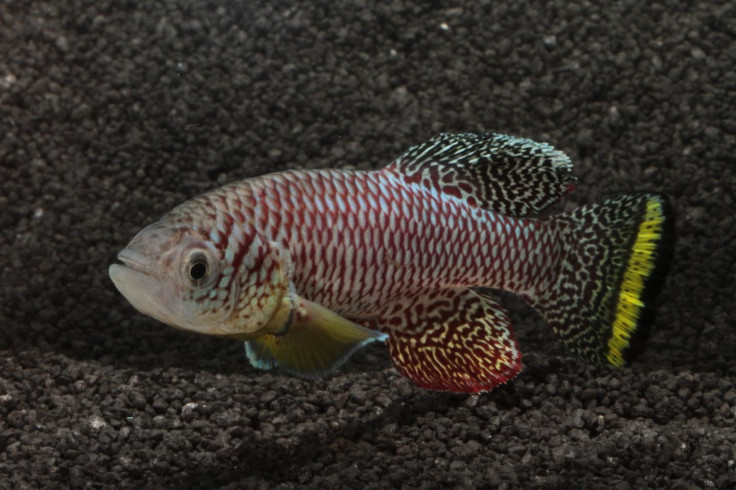African Killifish Fastest Maturing Vertebrate, Starts Reproducing 14 Days After Birth

With more than 1,200 different species, killifish make up one of the most diverse families of marine creatures. They are found in different parts of the world and are known to survive tough conditions by adapting or going into a state of dormancy called diapause.
Most members of the killifish family survive in freshwater, which means their embryos cannot come to life until it rains or the conditions are right for growth. This is where the state of diapause comes in. Essentially, the embryos go into hibernation and remain buried in sediments, waiting to hatch and grow when the time is right.
While the process ensures the survival of the eggs, it does leave the hatchling very little time to grow and produce more of its kind. The African annual killifish, officially named Nothobranchius furzeri, also faced the same problem but turns out they’ve condensed their lifecycle according to the available time.
In a new study, a group of researchers discovered the tiny killifish, found in parts of East Africa, goes from a millimeter-sized hatchling to a full-grown adult — measuring four to five centimeters — within just 14 days.
“We guessed that some populations of this species could achieve very rapid growth and sexual maturation under particular conditions," Martin Reichard, one of the researchers behind the discovery, said in a statement. "But we have found that this rapid maturation is the norm rather than a rare exception."
More importantly, the team also found, within the two weeks, the baby-turned-adult killifish also start reproducing to bring more of its kind to life. In fact, it is the fastest to attain sexual maturity among all vertebrates, the researchers explained.
The researchers made this discovery while exploring African annual killifish populations between January and May 2016. They visited the southern Mozambique region and collected a killifish each from eight separate pools of water.
Then, using the date of rain filling that pool and the present age of the fish, they estimated how long the creatures took to reach full maturity. The results for all eight subjects, be it male or female, revealed the fish hatched within three days of rain and turned into an adult in 14-15 days.
The observation also revealed annual killifish demonstrates a flexible lifecycle. Essentially, in contrast to the latest results, many previous studies have shown the creatures could even take four to ten weeks to reach maturity and start reproducing.
Reichard and colleagues studied the lifecycle of killifish in a bid to gain more insight into the aging process of vertebrates. Most vertebrates take a long time to age, but this particular creature provides a unique opportunity to study all aging-related changes, including functional declines, in a short span.
The study titled, "Extremely rapid maturation of a wild African annual fish," was published Aug. 6 in the journal Current Biology.
© Copyright IBTimes 2024. All rights reserved.





















